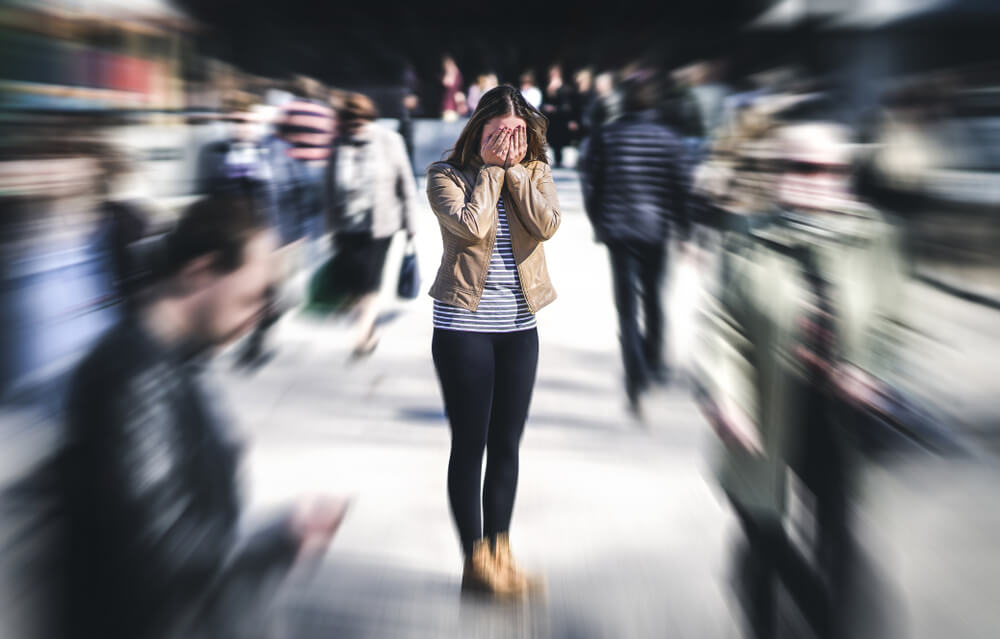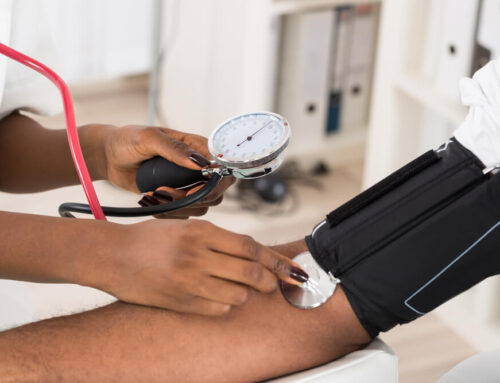First, to understand how to stop panic attacks, we must understand what they are. These attacks can be described as intense and sudden, overwhelming urges of anxiety, panic, or fear. They usually occur with a wide range of emotional and physical symptoms, such as intense sweating, heart pounding, difficulty breathing, and trembling. Some people even have problems with chest pains and may detach from reality, thinking that they are having a heart attack or a stroke.
Fortunately, several calming techniques for anxiety attacks work. From simple breathing techniques to reciting mantras, there are a few things that can effectively stop an anxiety attack. Also, there’s always expert mental health counseling if patients need an extra professional push to find relief or reassurance. On that note, you can always contact Carreras Medical Center to have your case assessed by licensed professionals who know how to help.
What Causes Panic Attacks and What The Symptoms Are?

These attacks may occur for several reasons, and in some cases, they happen for no reason at all. Experts agree that people are more likely to experience them if they:
- Are Diagnosed with panic or anxiety disorders
- Use specific medications
- Are dealing with substance use problems
- Have specific medical conditions (like an overactive thyroid)
- Are dealing with psychosis
Panic attacks will often occur when people are exposed to certain triggers, which can be different for different people. In other cases, no triggers are necessary to induce an attack.
Still, for the most part, the most prominent triggers are the following:
- Public speaking
- Conflict
- Social events
- Situations that remind the person of current or past stressful events
Typically, the symptoms of a panic attack are the following:
- Chest pain, discomfort
- Sweating
- Feeling unsteady
- Rapid heart rate, palpations, pounding heart
- Trembling, shaking
- Breathing difficulties
- Upset stomach, nausea
- Fainting, feeling dizzy, lightheadedness
- Fear of dying
- Feeling detached
- Tingling or numbness
- Fear of losing control
- Feeling as if things are unreal
How To Stop Panic Attacks?
The swiftness and the intensity of these attacks can make them incredibly scary. Fortunately, several calming techniques for anxiety attacks may help get patients some relief. Some of them help momentarily, while others may be useful in the long run as well.
Professional Counseling
Different types of counseling, like cognitive-behavioral therapy, can often help people stop panic attacks. CBT aims to train the person to learn to see frightening and challenging situations in a different light, giving them a chance to approach these same situations without anxiety and, thus, decreasing the likelihood of panic attacks. Apart from changing the patient’s behavior, some evidence suggests that effective cognitive-behavioral therapy may help affect some brain structures that are primarily responsible for the symptoms of these panic attacks.
Medications
Benzodiazepines like Xanax can bring panic attack relief and address the symptoms of panic attacks when they occur.
Still, medications won’t address the underlying causes that lead to these attacks in the first place. Moreover, they may also lead to dependence issues, and even more problems may stem from sudden withdrawal.
These are prescription medications, and patients will need a panic disorder diagnosis to get these meds. As such, they should only be taken under the guidance of a medical professional.
Recognize The Panic Attack
One of the best panic attack coping skills is realizing that you’re only having a temporary panic attack and not a heart attack. Often, this will be enough to take away the fear and may allow you to focus on your surroundings and breathing to reduce your symptoms and calm down.
To make it even more effective, you can always be mindful of your triggers as well. Once you’ve identified them and started to feel the panic kicking in, remind yourself: this is only temporary.
Deep Breathing
Hyperventilation is a common panic attack symptom, and it may increase fear, which only worsens the situation. Among the most effective panic attack coping skills, experts often mention deep breathing, which can help ease symptoms, along with improving focus and emotional well-being. Learning deep breathing techniques may also help with lowering stress and blood cortisol levels.
Mindfulness
How to stop an anxiety attack? Mindfulness can help you focus on your surroundings. Most panic attacks can trigger feelings of separation from reality and detachment; being mindful can help you combat the attack as you feel it approaching.
As such, you may try the following strategies:
- Recognizing your current emotional state
- Focusing on the present
- Meditating to relax and reduce stress
You may also focus on already familiar sensations to give yourself something to pay attention to. For instance, this can mean something as simple as digging your hands deep in your pockets or feeling your hair.
Finding a Focus Object
Some people will find panic attack relief if they focus all of their attention on something during the attack. This can mean focusing on an object and trying to note every detail about it consciously.
This can mean anything from watching the clock jerk while it ticks. You may also grab an object near to you and note how it feels its shape, size, color, patterns, and so on. As you focus all of your attention and energy on that object, your symptoms may go away completely or subside significantly.
Try Light Exercise

Research also suggests that light exercise can also have a positive effect on mental well-being. Researchers found that light to moderate exercise for at least 20 minutes on three occasions a week may help people reduce their anxiety.
If you are currently relatively physically inactive, it’s best that you consult with your doctor before starting any training program. Some evidence suggests that starting aerobic exercise out of the blue may make already existing anxiety disorders worse. Building things up gradually can help you avoid any breathing difficulties.
For starters, you may start with light running or jogging on the treadmill. Also, if you experience breathing problems or start to hyperventilate, seize the exercise, take a rest, and opt for other exercise options such as yoga, swimming, or walking.
If You Need Both Short or Long-Term Help
Many people experience these attacks, and in most cases, they are only individual incidents caused by a myriad of things, such as increased stress, tiredness, burnout, and more.
While these episodes can be frightening and may have a significant impact on your everyday life (a negative impact, that is), they are still manageable and highly treatable.
That said, feel free to reach out to our experts to learn more about panic attacks, your triggers, and yourself. Once you identified the root causes of your anxiety and stress, managing the symptoms of these attacks becomes a lot easier.
Schedule an appointment with us today.







